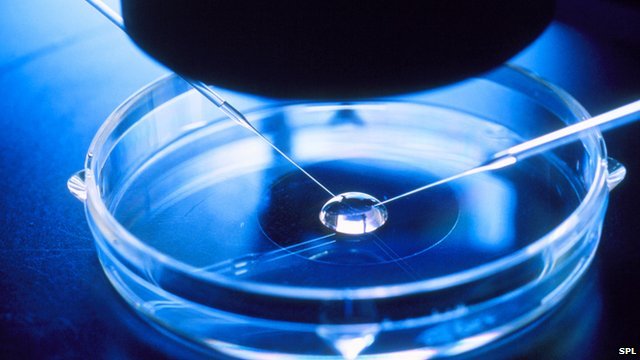-
Tips for becoming a good boxer - November 6, 2020
-
7 expert tips for making your hens night a memorable one - November 6, 2020
-
5 reasons to host your Christmas party on a cruise boat - November 6, 2020
-
What to do when you’re charged with a crime - November 6, 2020
-
Should you get one or multiple dogs? Here’s all you need to know - November 3, 2020
-
A Guide: How to Build Your Very Own Magic Mirror - February 14, 2019
-
Our Top Inspirational Baseball Stars - November 24, 2018
-
Five Tech Tools That Will Help You Turn Your Blog into a Business - November 24, 2018
-
How to Indulge on Vacation without Expanding Your Waist - November 9, 2018
-
5 Strategies for Businesses to Appeal to Today’s Increasingly Mobile-Crazed Customers - November 9, 2018
Frozen Eggs Less Successful for IVF Than Fresh Eggs
But a new study offers a promising solution for older women hoping to conceive using the alternative fertility treatment: retrieving eggs from the ovaries at an earlier stage of the IVF process.
Advertisement
In spite of the alarming differences, critics declare that the study faced some serious limitations as it didn’t consist of a randomized trial in which researchers could thoroughly and extensively compare the success of frozen versus fresh eggs in matched groups of women.
Parents attempting to start a family using donated or frozen eggs are often told that frozen eggs behave just like fresh ones, but a new study has found that in-vitro fertilization with frozen eggs has a significantly lower live birth rate. There was a almost 50 percent pregnancy success rate for in vitro fertilization cycles with fresh eggs, compared with a 43 percent success rate with frozen eggs. In fact, their study points to the fact that women who have received eggs which had been frozen have less chances of becoming pregnant than those who got fresh eggs.
Dr Vitaly Kushnir, who led the work, said: ‘Egg donors tend to be carefully selected healthy, young, fertile women.
Women who freeze their own eggs in order to postpone fertility “are generally not infertile, but most are not as young/healthy as carefully screened egg donors”, Kushnir explained, so he would anticipate pregnancy rates among women who freeze their own eggs to “depend largely on their age, health, the number and quality of eggs frozen, and the quality of the IVF center/lab where the procedure takes place”.
According to Professor Charles Kingsland from Liverpool Women’s Hospital, freezing eggs for later use is seen as a suitable alternative for many women even though the process still had issues.
Though such practices were not uncommon in the world of assisted reproductive technology, it was not until 2013 that the American Society for Reproductive Medicine declared egg freezing techniques no longer experimental. Initiated cycles were canceled in 12 percent of fresh oocyte cycles vs 8.5 percent of cryopreserved oocyte cycles. Donated fresh oocytes traditionally have been used immediately, creating embryos for transfer into the uterus, with extra embryos being cryopreserved for later use.
The difference was greater when the researchers calculated the number of live births per embryo transferred. No matter the age, there is a small risk associated with choosing to freeze eggs. The ideal moment seldom happens in one’s life and ironically, most of the time we miss it. Speaking of the flawless moment, frozen eggs are not very efficient at guaranteeing pregnancy.
Advertisement
But they say that women should be advised that freezing could lower the chances of having a baby. “Egg-freezing has only recently been widely adopted, and these results show how effective this approach can be for those needing donor eggs”, he said. Sometimes the most pivotal part of a woman’s career can inconveniently coincide with the window during which it’s biologically easiest and safest to have kids, and egg freezing is considered one potential option for extending that time frame.





























